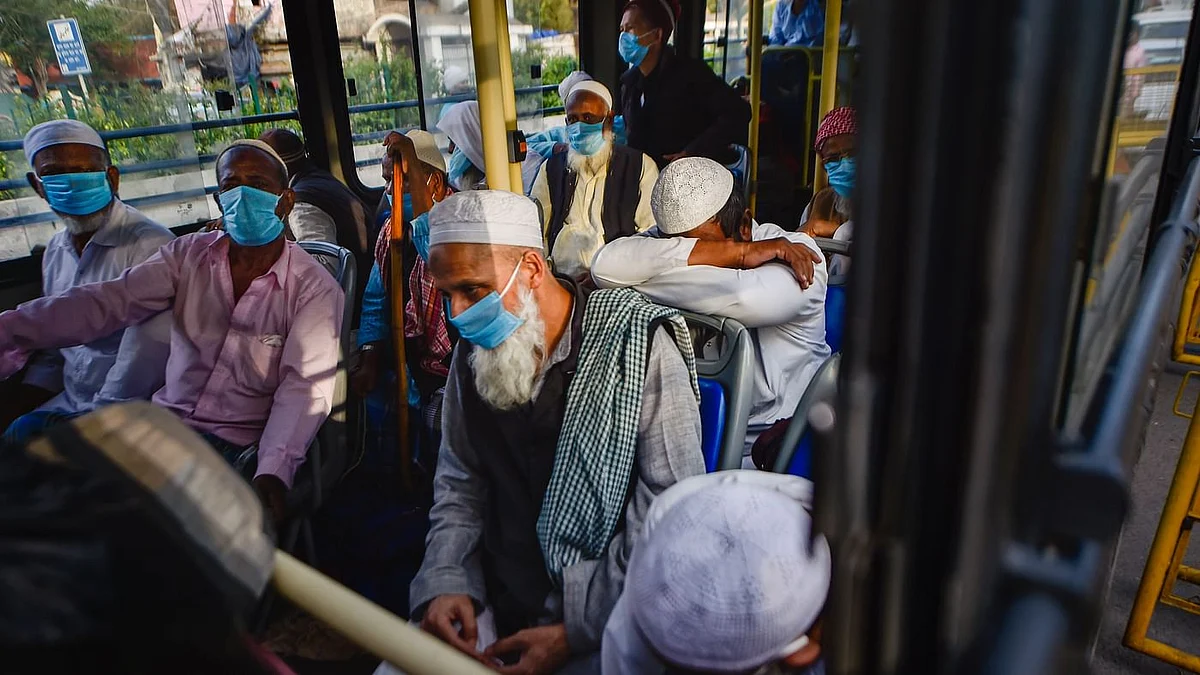Citizen Booked for Housing Tablighis Approaches Delhi HC
Booked for housing foreigners related to Tablighi Jamaat during lockdown, Indian citizen moves Delhi High Court

advertisement
Rizwan, an Indian citizen and a resident of Delhi-6, has moved the Delhi High Court to quash an FIR lodged against him by the Delhi Police, who booked him under various criminal law provisions — for a humanitarian gesture.
After the imposition of the lockdown on 24 March 2020, Rizwan had a place to stay for female Tablighi Jamaat devotees who had come to attend the Markaz event, which had taken place just before.
Decoding the Criminal Case Against Rizwan
After the imposition of the nationwide lockdown, the Additional Commissioner of Police (Daryaganj) issued an order under section 188 of the Indian Penal Code on 24 March, prohibiting any religious, cultural, social, or political activity.
Just days later on 31 March, an FIR was registered against those Indian citizens who had organised the Markaz congregation at Nizamuddin in Delhi. Later on, the scope of this FIR was expanded to include more than 950 foreign nationals who had attended the Markaz event.
In the wake of the COVID-19 pandemic, all international flights were cancelled and travel activities halted. Therefore, foreign nationals who had come to attend the congregation were stranded and had to look for shelter.
While some men stayed at the masjid, the women had to be sent elsewhere, as their faith doesn’t allow them to be housed in a mosque. This is when Rizwan stepped forward to offer his house to six female foreign nationals who could not find any other accommodation.
Criminalised Under The Tablighi Bogey
Rizwan believes that he has been criminalised because of the communal narrative built around the Tablighi Jamaat event. Catchphrases such as the “virus trains” and “corona Jihad” used in the media led to the registration of these FIRs against him and 955 foreign nationals.
A bare perusal of the FIR registered against Rizwan nowhere mentions the reason for invoking such offences against him. It doesn’t mention any religious or political event taking place at his residence while invoking section 188 of IPC against him.
Rizwan’s claim is further strengthened by the judgments given by courts across the country. To date, out of 20 FIRs registered against 2,765 Tablighi Jamaat foreign nationals in 11 states, not a single person has been convicted on merits.
On 16 December 2020, a Delhi Court acquitted 38 foreign nationals related to Tablighi Jamaat by noting that there was not even an iota of evidence against them. The court further said:
Riwan Moves The Delhi High Court
Rizwan has challenged his criminalisation before the Delhi High Court, claiming that the case against him is completely “unwarranted” and “devoid of any evidence”. He also contends that this case has subjected him to stigmatisation and prejudice, hence violating his right to dignity under Article 21 of the Constitution.
Rizwan’s lawyer Ashima Mandla believes that the Magistrate should not have taken cognizance of the complaint filed against him in the first place. She said that the law on section 188 of IPC clearly states that cognizance can only be taken upon a written complaint filed by the public servant whose order was allegedly violated, which didn’t happen in the present case.
Mandla also believes that invoking section 269 against Rizwan is also completely unwarranted as there is no evidence to suggest that he committed an act likely to spread a deadly disease. “He tested negative, then how can he be accused of spreading coronavirus,” she told The Quint.
A single-judge bench of Justice Suresh Kumar Kait at the Delhi High Court issued notice on Rizwan’s petition, asking the police to respond to his arguments. The police have been given four weeks to respond.